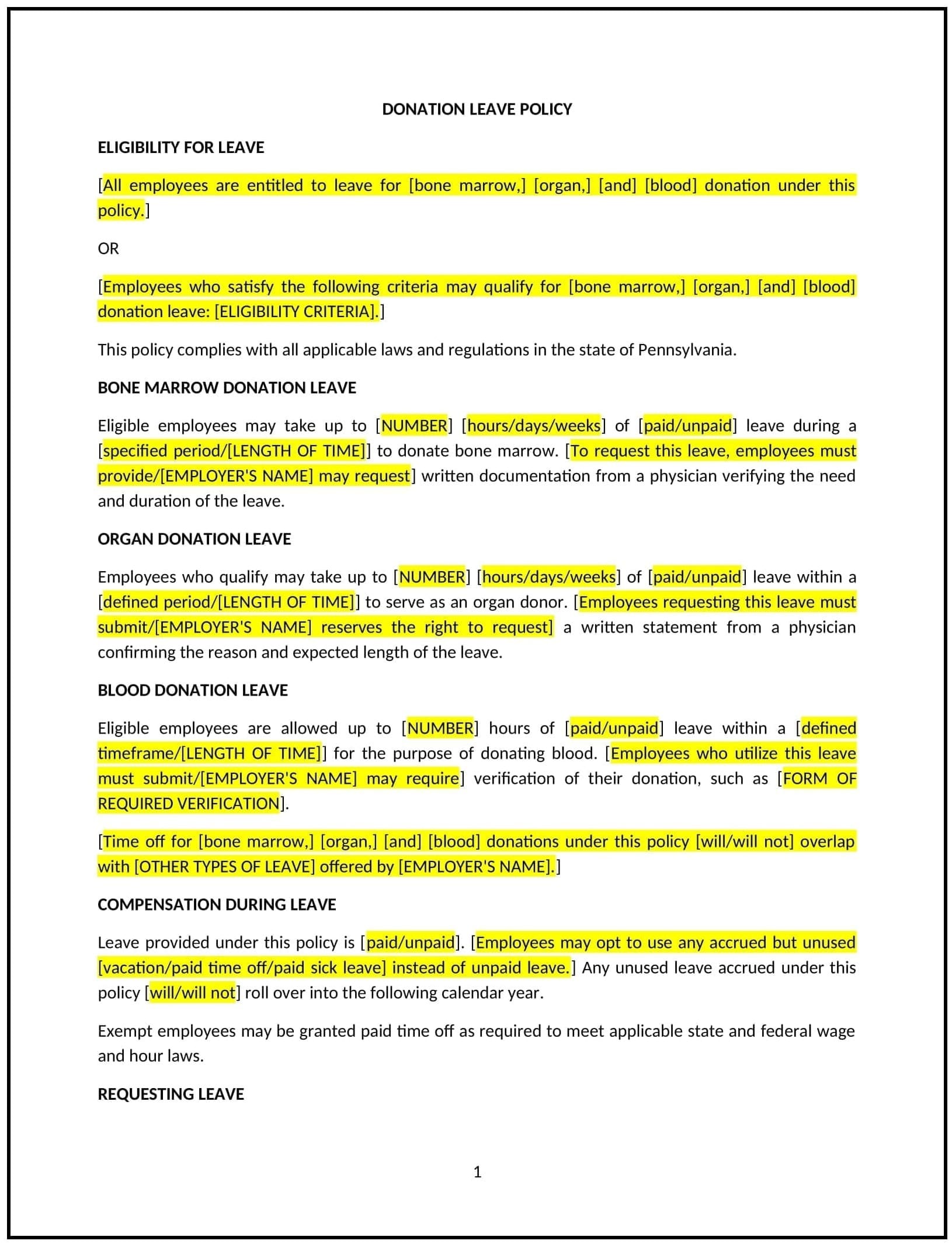Donation leave policy (Pennsylvania): Free template
Got contracts to review? While you're here for policies, let Cobrief make contract review effortless—start your free review now.

Customize this template for free
Donation leave policy (Pennsylvania)
This donation leave policy is designed to help businesses in Pennsylvania provide employees with time off to participate in charitable activities, such as blood donations, organ donations, or volunteering for nonprofit organizations. Whether fostering community engagement or aligning with employee values, this template outlines clear guidelines for managing donation leave while reflecting Pennsylvania’s workforce practices.
By using this template, businesses can promote employee well-being, strengthen community ties, and enhance workplace morale.
How to use this donation leave policy (Pennsylvania)
- Define eligible activities: Clearly specify the types of donation-related activities covered under the policy, such as blood or organ donations and volunteering.
- Establish leave duration: Outline the amount of paid or unpaid leave available for donation activities and any restrictions on frequency or timing.
- Include application procedures: Provide steps for requesting donation leave, such as submitting a written request or obtaining approval from a supervisor.
- Address documentation requirements: Specify if employees need to provide proof of participation in the donation activity, such as a certificate or confirmation letter.
- Reflect Pennsylvania-specific considerations: Tailor the policy to align with local practices, such as promoting participation in Pennsylvania-based nonprofits or addressing state-specific labor laws.
Benefits of using a donation leave policy (Pennsylvania)
A well-structured donation leave policy supports employee engagement and community involvement. Here's how it helps:
- Encourages community engagement: Allows employees to contribute to meaningful causes, fostering a sense of purpose.
- Enhances workplace morale: Demonstrates the organization’s commitment to supporting employees’ values and charitable efforts.
- Promotes retention: Increases employee satisfaction by offering leave benefits that align with their personal values.
- Provides clarity: Establishes clear guidelines for requesting and managing donation leave, reducing misunderstandings.
- Reflects local values: Aligns with Pennsylvania’s emphasis on community-focused initiatives and nonprofit support.
Tips for using a donation leave policy (Pennsylvania)
- Communicate expectations: Share the policy with employees to ensure they understand the types of donation leave available and how to request it.
- Encourage participation: Promote donation leave as part of the company culture, highlighting opportunities to support Pennsylvania-based causes.
- Monitor leave usage: Track donation leave requests to ensure consistent application of the policy and identify popular causes or activities.
- Collaborate with nonprofits: Build relationships with local nonprofits to provide employees with opportunities to engage in charitable activities.
- Review periodically: Update the policy to reflect changes in Pennsylvania labor laws, organizational priorities, or employee feedback.